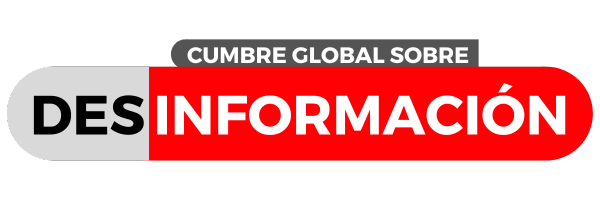
Global Summit on Disinformation: Check out the full lineup of speakers and activities!

One week before the Global Summit on Disinformation 2024, the organizing committee has announced the full program of speakers, projects, and activities that will take place on September 18 and 19. Confirmed speakers include David Agranovich (Meta), Iria Puyosa (Atlantic Council), the Media Observatory of Tecnológico de Monterrey, Cathleen Berger and Charlotte Freihse (Bertelsmann Stiftung), Erich De la Fuente (Florida International University), the FactChequeado team, the Chequeado team and its MileiPedia project, Bertrand Mossiat (RSF), Proyecto Desconfío and its “The Trust Editor” tool, Julia Angwin (Proof News), and Martha Ramos (Alianza de Medios de México).
New speakers and initiatives have been added this week, further expanding the scope of the event and delving into different aspects of the fight against disinformation. See the full lineup and register free of charge here.
AI: ally or enemy?
Nick Toso, founder and CEO of Rolli, will present this platform that not only facilitates access to verified experts but also offers tools to identify and combat misinformation, thus supporting local journalists and improving the quality of journalism.
Lukas Görög, founder of Predictea Digital Care, will share his experience as an artificial intelligence strategist, highlighting how data and AI can transform business results through content and analytics strategies.
Ana Paula Valacco will present JournalismAI, a global initiative to empower news organizations to use artificial intelligence responsibly. Through innovation and capacity building, JournalismAI facilitates access to the potential of AI in journalism and works to address media inequalities worldwide.
Technological innovations to combat disinformation
In the session dedicated to technological tools, several highly relevant initiatives will be presented:
Prisa’s fake audio detection platform: Spain’s Prisa Group will present its advanced platform for detecting manipulated audio. This tool promises to revolutionize the way audio content is verified in the media.
Content Authenticity Initiative (CAI): CAI will present its advances in the identification and verification of metadata in images and videos, providing journalists with a key tool to ensure the authenticity of visual content.
Witness and its video monitoring tool: Witness, an NGO recognized for its work in human rights and technology, will demonstrate its tool for monitoring and detecting video manipulation, strengthening the fight against visual disinformation.
The role of fact-checking in the era of electoral disinformation
Fact-checking continues to be a fundamental piece in the fight against disinformation, and this year will be no exception:
Maldita.es presents Elections24Check: This project, led by the European Fact-Checking Standards Network (EFCSN), involves more than 40 fact-checking organizations in Europe. Elections24Check creates a database that collects political fact-checking publications, denials and reports, allowing users to search and filter articles by language, country, political party or key issues such as climate change or migration, providing citizens with quick access to verified data at a critical time such as the 2024 European Parliament elections.
Bolivia Verifica will share its experience in integrating artificial intelligence into the verification process, and how these technologies can improve accuracy and efficiency in detecting misinformation.
Chequeado and Factchequeado: Both platforms will focus their presentations on monitoring electoral disinformation in Argentina and the U.S., respectively, and highlight the importance of regional cooperation in this effort.
Media innovates to combat disinformation
Cuestión Pública from Colombia will present its Odin Project, an innovative initiative that uses artificial intelligence to optimize the creation of timely content enriched with in-depth research, positioning the media as a leader in journalistic innovation in Latin America.
Quispe Chequea from Peru will present its innovative approach to fact-checking in indigenous languages, using artificial intelligence to overcome linguistic and cultural barriers in the fight against misinformation in Peru.
Efecto Cocuyo from Venezuela, will be presented by Luz Mely Reyes, co-founder and general director, who will share her experience on how to produce reliable, quality, independent, innovative, and sustainable journalism in adverse contexts such as the press in Venezuela.
Education and Media Literacy
Sally Reynolds, Director of the European Digital Media Observatory (EDMO) and co-founder of ATiT, will share her extensive experience in using educational technology to combat disinformation.
Muy Waso from Bolivia will present Bomba Viral, an informal, immersive and gamified experience created to promote media and information literacy (AMI) for people over the age of 16. Bomba Viral stars a group of animals representing the Bolivian fauna who are confronted with an uncontrolled virus that spreads disinformation and hate speech.
DW Academie Ukraine will also participate in the session dedicated to Media Information Literacy (MLI), where it will present playful experiences that help consolidate digital skills against disinformation, especially among the new generations.
Proyecto Desconfío will present a board game to engage young people in the field of disinformation.
AlfabetaMedia Lab, will present Mala Hierba, a book-length academic research project that explores how disinformation germinates, grows, reproduces, and fights in El Salvador.
The Latin American Council for the Accreditation of Journalism Education (CLAEP) will lead a discussion with professors and directors of Latin American universities on the challenges that disinformation poses to the training of future journalists.
Funding and Opportunities for Journalists
This year, the Summit will have a special new space for several global organizations to present their funding programs to support journalists and media in fighting disinformation. Organizations such as the European Journalism Centre (EJC), the European Media and Information Fund (EMIF), the National Endowment for Democracy (NED), the International Fact-Checking Network (IFCN), as well as the United Nations Argentina and the Latin American initiative Connectas, will provide details on their calls for proposals and application requirements.
The Global Summit on Disinformation 2024 is an important space for sharing knowledge and strategies in the fight against disinformation. We invite everyone to view the full program and participate in this free online meeting with simultaneous Spanish-English/English-Spanish translation on September 18 and 19.



